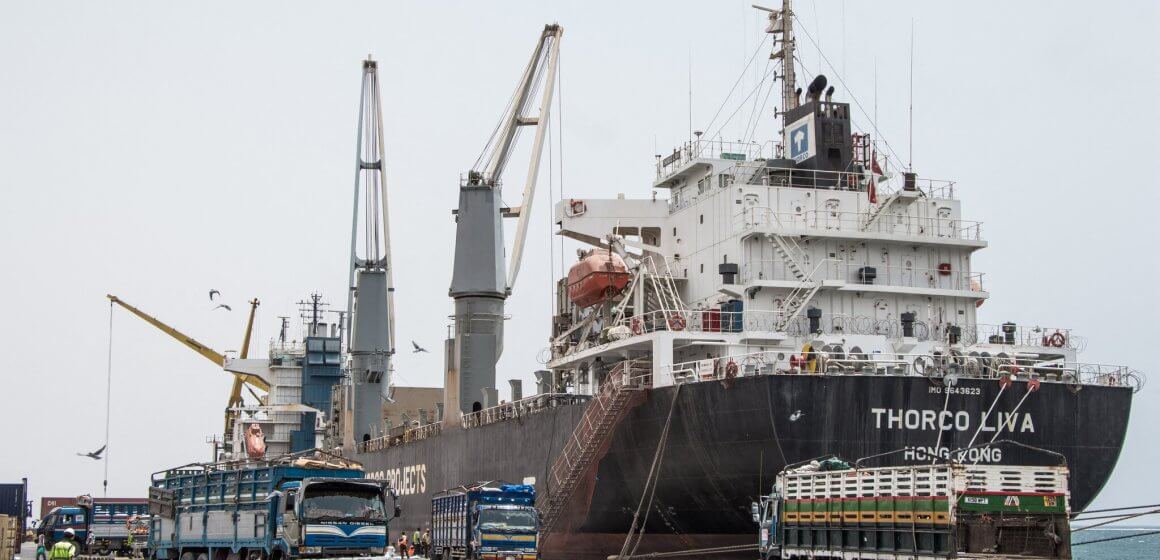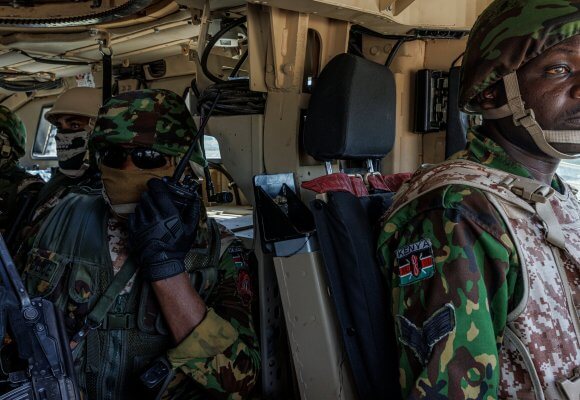|
LISTEN TO THIS THE AFRICANA VOICE ARTICLE NOW
Getting your Trinity Audio player ready...
|
On Friday, March 29, 2025, Somaliland firmly rejected an attempt by Somalia’s central government to offer the United States exclusive control over the Berbera port and airbase. The move, which Somaliland officials called “desperate,” has reignited tensions between the breakaway region and Mogadishu over territorial sovereignty and international recognition. The move has also reignited tensions over Somaliland’s long-standing quest for international recognition and Mogadishu’s insistence on maintaining territorial unity.
The dispute arose after a letter surfaced, reportedly sent by Somalia’s President Hassan Sheikh Mohamud to US President Donald Trump, proposing that the US take exclusive control of four strategic facilities; two in Somalia and two in Somaliland, including the port and airbase in Berbera. The letter, dated March 16, positioned the deal as a way to reinforce US military presence in the region and counter geopolitical rivals such as China and Russia.
Somaliland’s government responded with swift and categorical rejection. Abdirahman Dahir Aden, Somaliland’s Foreign Affairs Minister, dismissed Mogadishu’s move as an act of desperation, arguing that Somalia had no authority over Somaliland’s assets. “There is nothing they can do to stop the upcoming recognition of Somaliland,” Aden posted on social media platform X.
Somaliland, a self-declared republic in the northwestern region of Somalia, has governed itself independently since 1991 when it broke away following the collapse of Siad Barre’s military regime. Unlike the rest of Somalia, which has struggled with instability and militancy, Somaliland has built a relatively stable government, conducted democratic elections, and maintained a functioning economy.
Despite operating as a de facto independent state for over three decades, Somaliland remains unrecognized by any country. However, with Trump’s return to power, hopes for formal recognition have grown among Somaliland officials, who see US strategic interests in the region as an opportunity to cement their status on the global stage.
Mogadishu, on the other hand, has worked tirelessly to prevent Somaliland’s independence from gaining international legitimacy. President Mohamud’s latest offer to Washington appears to be part of a broader strategy to assert Somalia’s control over the entire territory, including areas that do not recognize its authority.
At the center of the dispute is Berbera, a city that sits on the Gulf of Aden, one of the world’s most important maritime routes. The port has become a crucial economic and strategic asset, managed by DP World, a Dubai-based logistics giant with ties to the UAE, one of the US’s closest allies in the region.
With Somalia offering the US access to Berbera, questions have arisen about the UAE’s role in the matter, as any American presence at the port could affect regional alliances. Somaliland officials, confident in their control over Berbera, argue that any foreign agreements must be made through Hargeisa, not Mogadishu.
“The USA is not stupid. They know who they need to deal with when it comes to Berbera port,” Foreign Minister Aden reportedly told Reuters.
Mogadishu’s decision to offer US control over strategic infrastructure reflects its growing anxiety over Washington’s support. The US has been a key security partner for Somalia, assisting in counterterrorism efforts against al-Shabab, an al-Qaeda-linked militant group that still controls vast territories in the country.
However, concerns are mounting that Trump’s administration might scale back US involvement, as he did during his first term when he withdrew American troops from Somalia. To preempt this, Somalia’s government recently signed a $600,000-per-year deal with a Washington-based lobbying firm to strengthen its relations with the US.
The letter to Trump appears to be part of this effort, framing the proposed US control of Somali ports and airbases as a way to maintain a strong American presence in the region and prevent foreign rivals from expanding their influence.
But the offer has also stirred internal tensions within Somalia. One of the proposed sites, the port of Bosaso, is located in Puntland, a semi-autonomous region that has had a rocky relationship with the federal government in Mogadishu. Puntland authorities have not publicly commented, but reports suggest that if the deal was made without their consultation, it could further strain relations between the region and the central government.
This is not the first time Somaliland’s strategic ports have been at the center of a diplomatic tussle. Just last year, a maritime deal between Somaliland and Ethiopia almost triggered a regional crisis after Mogadishu declared the agreement illegal, calling it an “act of aggression.”











LEAVE A COMMENT
You must be logged in to post a comment.